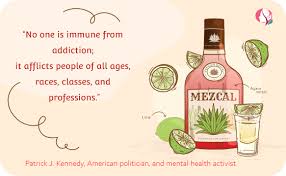Cyber Recovery Addiction Alcohol, In today’s fast-paced digital world, the journey toward recovery from alcohol addiction has been profoundly transformed by the rise of cyber recovery programs. With online tools, platforms, and communities, people struggling with alcohol addiction now have more ways than ever to find support. However, the use of technology for addiction recovery introduces both opportunities and challenges, particularly in how it shapes the process of overcoming alcoholism.
The Rise of Cyber Recovery Programs
Cyber recovery refers to the use of online platforms, applications, and resources to aid individuals in overcoming addiction. From virtual support groups to teletherapy and recovery apps, the digital revolution has made alcohol recovery more accessible. Many traditional recovery methods, such as Alcoholics Anonymous (AA) meetings, have expanded into online spaces, offering flexibility to those who may not be able to attend in person.
Platforms like Sober Grid and Loosid have created digital spaces where individuals can connect, share experiences, and offer encouragement to others on the same journey. Cyber recovery provides tools such as relapse prevention tips, mindfulness exercises, and progress tracking—all available at the touch of a button.
Benefits of Cyber Recovery in Alcohol Addiction
- Accessibility: Online recovery resources break down barriers of geography and scheduling. Those in remote areas or with demanding lifestyles can still access professional help and peer support through virtual meetings, forums, and apps.
- Anonymity and Privacy: For some, the stigma surrounding addiction can be overwhelming. Online recovery options provide a layer of anonymity, allowing people to seek help without fear of judgment. Virtual platforms can foster a sense of safety and comfort for those who are uncomfortable in traditional, face-to-face settings.
- 24/7 Support: Unlike in-person programs that operate on a schedule, cyber recovery resources are available around the clock. This constant accessibility ensures that when a person is in a moment of crisis or craving, they can reach out for support immediately.
- Tailored Recovery Programs: Many online recovery platforms offer personalized plans, adapting to individual needs. This can range from daily motivational messages to customized therapy sessions that fit each person’s unique challenges with alcohol addiction.
Challenges in Cyber Recovery
Despite the many benefits, cyber recovery also poses unique challenges in the fight against alcohol addiction.
- Lack of Physical Interaction: One of the strongest elements of traditional recovery programs, such as AA, is the sense of community built through face-to-face interactions. Cyber recovery, while convenient, can lack the depth of in-person connection, which can be critical for emotional support and accountability.
- Over-reliance on Technology: The ease of accessing recovery tools online may create a dependence on technology. Individuals who find comfort in digital platforms may struggle when they’re offline or when technology fails, making it difficult to build real-world coping skills.
- Risk of Isolation: Although cyber recovery offers accessibility, it may inadvertently isolate individuals. The absence of physical gatherings can hinder the formation of deep, supportive relationships that in-person meetings foster, which are often key to long-term recovery success.
- Digital Addiction Risk: There is also the potential for developing unhealthy relationships with digital platforms. Some individuals may swap one addiction (alcohol) for another (excessive screen time or social media), complicating their recovery journey.
Finding the Right Balance
To maximize the benefits of cyber recovery, it’s important to strike a balance between digital and in-person support. Many addiction specialists recommend combining online resources with traditional face-to-face therapy or group meetings. This hybrid approach offers the best of both worlds: the convenience and accessibility of cyber recovery with the emotional depth and personal connection found in real-life interactions.
For those recovering from alcohol addiction, leveraging technology can provide an extra layer of support. With the right balance and mindful use of cyber tools, individuals can develop a comprehensive recovery plan that supports their sobriety in the digital age.
Conclusion
The integration of cyber recovery tools in alcohol addiction treatment represents a significant evolution in how individuals can achieve and maintain sobriety. While online platforms offer unparalleled accessibility, convenience, and privacy, they are not without their challenges. Combining both digital and traditional methods can provide a holistic and effective path toward long-term recovery. As technology continues to evolve, so too will the ways in which people heal from addiction, empowering individuals to reclaim their lives with greater flexibility and support.
You Might Also Like These:
The Importance of a Cyber Disaster Recovery Plan Template
Christopher Mullen’s Cyber Addiction Recovery Center: A Beacon of Hope for the Digital Age
What Is the Main Purpose of Cyber Incident Recovery?
Cyber Incident Management and Recovery Plan: A Strategic Approach to Resilience
2018 Cyber Security: Disaster Recovery Planning and YouTube’s Role

